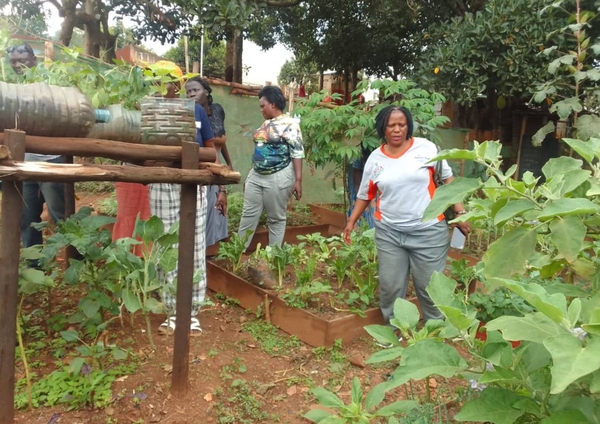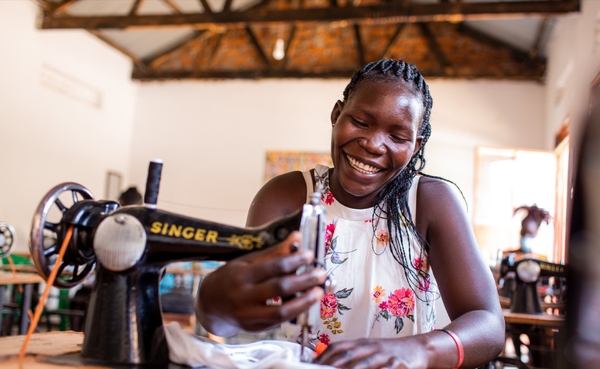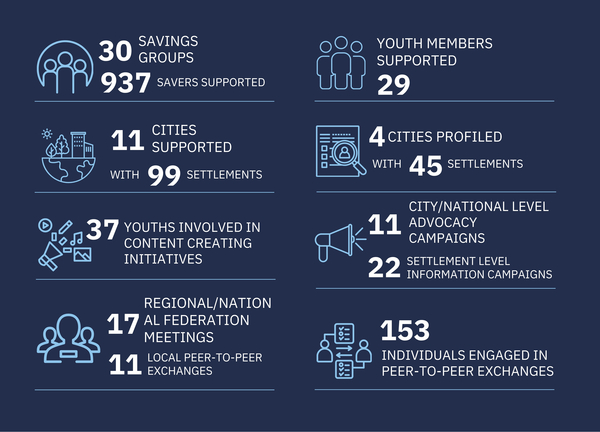- Who We Are
- How We Work
- Regional / Country Initiatives
- Legacy
- Core Themes
- Working Groups
- Portfolio & Results
- Newsroom
- Resources
Uganda: Strengthening Community Resilience to Climate Challenges

Project Overview
In response to the intersecting challenges of climate change, socio-economic shocks, health, and lack of municipal services, ACTogether Uganda, in collaboration with the National Slum Dwellers Federation of Uganda (NSDFU), is leading efforts to enhance resilience in Uganda's urban informal settlements.
The project aims to tackle climate change by ensuring access to vital information and fostering awareness and resilience through profiling and mapping risks and interventions, conducting media advocacy campaigns, and hosting radio programmes designed for the community and youth to engage a wider audience on inclusive development. Additionally, the project focuses on economic empowerment by providing peer-to-peer exchanges, vocational skills training, and business start-up kits. The goal is to strengthen resilience across 11 cities and municipalities.
This project is part of the Building Resilience in Informal Settlements Programme, a partnership between Cities Alliance and Slum Dwellers International (SDI), funded by the Swedish International Development Cooperation Agency (Sida), to support civil society organisations working in informal settlements.

Initial Project Results: 2022-2024
The project has empowered communities in 11 cities by supporting 30 savings groups. Over 100 participants have undergone vocational training, equipping them with essential skills for employment and entrepreneurship. This has led to tangible outcomes, with functional enterprises emerging in areas such as welding, catering, tailoring, and hairdressing. Peer-to-peer exchanges and financial literacy trainings have fostered entrepreneurship, particularly among women-led initiatives. Federation members now have access to vital financial resources at low interest rates, enabling them to address immediate needs and invest in their future.
45 settlements were profiled in 4 cities to update existing information about slum settlements, while a climate change profiling and mapping exercise was carried out to ascertain the geographical location and nature of existing climate change risk areas in slum communities in Jinja, Kampala, and Mbale City.
The KYC TV initiative has successfully delivered extensive media production training to more than 37 youths, spanning from storyboarding to filming and editing to social media interaction. This has enabled them to effectively amplify community voices and advocate for their rights and needs.

Key Achievements: 2022-2024

